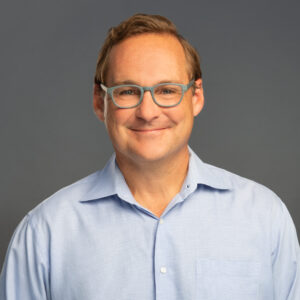Growth and Momentum in Austin’s Startup Ecosystem
Our first ‘Spotlight On,’ a new series highlighting VC ecosystems across the country, features Austin, TX. Dennis McWilliams, Partner at Austin-based VC firm Santé.
The main idea: Austin’s startup scene is evolving, making the city poised for growth in life science investing.
NVCA recently launched ‘Spotlight On,’ a new series highlighting VC ecosystems across the country. Our first program on March 2 featured Austin. Dennis McWilliams, Partner at Austin-based VC firm Santé, shares his perspective on the evolution of Austin’s startup scene and why the city is poised for growth in life science investing.
Q&A with Dennis McWilliams of Santé

Tell us about your background in the Austin startup ecosystem?
You could say I’m actually a product of the Austin startup ecosystem.
Following graduate school, I moved back to Austin to work with George Kozmetsky at the IC2 Institute; a think tank focused on commercialization and innovation. George is considered the grandfather of the Austin startup ecosystem and has mentored countless entrepreneurs, including me. IC2 worked on both the theory of innovation commercialization as well as its implementation. For me, it was a great perch to see exciting technology that was coming out of Universities, NASA, and even the CIA. One of my IC2 projects was working with the University of Texas Medical Branch on new biological compounds that regulate tissue regeneration, which eventually led to a career pivot out of software as I helped spin this technology out into a private company.
Following that company’s acquisition, I moved back to Austin, became interested in medical devices, and started Apollo Endosurgery. Apollo focuses on developing a new class of surgical instrumentation for “natural orifice” surgery. Apollo is publicly traded today and has global headquarters just west of Austin. It has been very rewarding to see it blossom, positively impact patient lives, and grow to an employee base of over 200 people.
After more than 25 years focused on startups, it was time to go to the “other side” and focus on investing. I joined Santé Ventures, a fund focused on early-stage life sciences, two years ago, and I have enjoyed the transition immensely.
Walk us through a bit of the history of life science startups in Austin. How has the Austin startup ecosystem developed and grown over the last few decades?
Life Science has been a slow but steady grower in Austin over the past few decades. Because we lacked a medical school, most life science technology in the state was developed in either Houston or Dallas around the large academic medical centers in those cities. Even those innovation centers lag behind the Bay Area, Boston, and San Diego in terms of venture capital dollars and startup activity in life sciences. Austin’s reputation as an entrepreneur’s paradise has always meant there was a steady amount of activity in life sciences. Still, until recently, it has been secondary to the city’s spectacular success on the tech side.
There have been several successful life science entrepreneurs in Austin, but any conversation about our life science ecosystem has to include two longtime entrepreneurs: Rick Hawkins and Matt Winkler. Both have been serial entrepreneurs who started very successful life science startups in Austin in the 90s- Rick with clinical trials services company Pharmaco and Matt with his reagent company Ambion. Both companies eventually were acquired and spawned several follow-on startups in Austin, including diagnostics company Asuragen which BioTecne just acquired for $350 million. Matt and Rick have mentored and supported numerous younger entrepreneurs, including me, and have given back time and service to help build our community. Additionally, their successful companies have relocated a lot of life science talent to Austin, which has moved on to other local companies.
Our venture community has grown too. The success of local healthcare-focused VCs like Santé means entrepreneurs have a friendly entrée point into the global biotech investment network. And the continued exodus of people from the west coast to Austin has included a large number of life science funds, firms, and executives.
What investments in the Austin startup community are finally starting to pay off in Life Sciences and the broader tech/startup boom in Austin?
Austin has had a deliberate economic development strategy focused on its tech and life science ecosystem for several decades. The pioneering work by IC2 eventually led to the Austin Technology Incubator (ATI) and the Austin Technology Council (ATC), both key institutions that helped shape policy to support the tech ecosystem. Many of the companies that went through ATI eventually became some of the more significant successes in Austin, feeding off the growth of macro players Dell and AMD.
These early successes, combined with Austin’s reputation as the “live music capital of the world,” eventually gave birth to #SXSW. No event has made a larger impact on the entrepreneurial reputation of Austin than #SXSW. Millions of people worldwide have been exposed to our innovative community, and Austin’s brand as one of the world’s best entrepreneurial communities is solidly intact.
On the life science side, the Dell Medical School at UT Austin will be a game-changer and is already starting to impact our ecosystem, especially when combined with an already strong biology and chemistry program. Local life science companies’ ability to tap into the faculty and student talent has been an essential fuel for many local startups.
How has Santé Ventures grown up alongside the Austin ecosystem?
To some extent, the growth of Santé has paralleled the growth and development of the broader life science ecosystem in Austin. Our fund’s lineage traces back to Austin Ventures, one of the most successful software and tech VCs in the country. As life sciences started to show a readiness to emerge from its embryonic stages, founding Santé partners Kevin Lalande, Doug French, and Joe Cunningham spun out of AV and started a healthcare dedicated fund, specifically focused on early-stage companies. Our headquarters in Austin naturally integrates us into the local life science ecosystem, and we have had tremendous success with Austin-based companies.
LDR Spine was an early investment that eventually was acquired by Zimmer Biomet for over $1 billion, and Becton Dickinson acquired TVA Medical. Additionally, founders Chris Lavigne and Adam Berman have continued to make positive contributions to the Austin life science ecosystem. Santé is investing out of our 3rd fund of $250 million, and we plan to start investing out of a similarly structured 4th fund this spring.
What are you looking forward to over the next several years for Austin life science startups? Where do you think the Austin ecosystem is headed?
Santé is building out our capabilities in “digital health” with additions to our team, as we view the digitization of medicine as one of the most exciting trends in our field. Austin is poised to become a leader in this transformative field with our depth of talent in the software and data industry and a brand new medical school. I anticipate that health themes will become a greater proportion of the #SXSW program. More and more life science venture funds and companies are relocating to Austin from San Francisco and Boston’s more expensive clusters. We have a ton of momentum here. The combination of this capital with the entrepreneurial soul of our city should make those traditional life sciences powerhouses concerned.
As the Manager of Communications and Digital Strategy at NVCA, Devin plays a central role in NVCA’s communications operation, communicating with key constituencies in the entrepreneurial ecosystem as well as enhancing NVCA’s brand in Washington, D.C. Devin develops and executes on the organization’s communications and public relations strategies and creates media content to support them.

